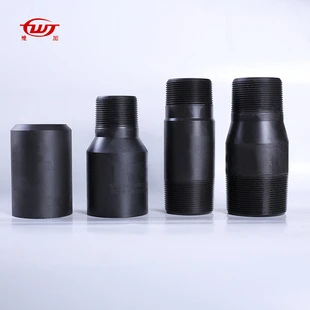- Afrikaans
- Albanian
- Amharic
- Arabic
- Armenian
- Azerbaijani
- Basque
- Belarusian
- Bengali
- Bosnian
- Bulgarian
- Catalan
- Cebuano
- Corsican
- Croatian
- Czech
- Danish
- Dutch
- English
- Esperanto
- Estonian
- Finnish
- French
- Frisian
- Galician
- Georgian
- German
- Greek
- Gujarati
- Haitian Creole
- hausa
- hawaiian
- Hebrew
- Hindi
- Miao
- Hungarian
- Icelandic
- igbo
- Indonesian
- irish
- Italian
- Japanese
- Javanese
- Kannada
- kazakh
- Khmer
- Rwandese
- Korean
- Kurdish
- Kyrgyz
- Lao
- Latin
- Latvian
- Lithuanian
- Luxembourgish
- Macedonian
- Malgashi
- Malay
- Malayalam
- Maltese
- Maori
- Marathi
- Mongolian
- Myanmar
- Nepali
- Norwegian
- Norwegian
- Occitan
- Pashto
- Persian
- Polish
- Portuguese
- Punjabi
- Romanian
- Russian
- Samoan
- Scottish Gaelic
- Serbian
- Sesotho
- Shona
- Sindhi
- Sinhala
- Slovak
- Slovenian
- Somali
- Spanish
- Sundanese
- Swahili
- Swedish
- Tagalog
- Tajik
- Tamil
- Tatar
- Telugu
- Thai
- Turkish
- Turkmen
- Ukrainian
- Urdu
- Uighur
- Uzbek
- Vietnamese
- Welsh
- Bantu
- Yiddish
- Yoruba
- Zulu
Understanding the Benefits and Applications of Teflon Coupling in Modern Engineering
Teflon Coupling Innovations in Fluid Dynamics
Teflon coupling, a term gaining traction in various engineering and industrial applications, refers to a unique interface often used in fluid transfer systems and coupling mechanisms. Teflon, or polytetrafluoroethylene (PTFE), is known for its exceptional chemical resistance, low friction, and high-temperature resilience. These properties make Teflon the ideal candidate for creating reliable couples in a range of environments, from chemical manufacturing plants to food processing facilities.
The Properties of Teflon
Understanding the advantages of Teflon is crucial to comprehending why Teflon coupling has become a preferred choice. Teflon boasts a very low coefficient of friction, which allows components to slide smoothly against each other, reducing wear and tear over time. Additionally, its unparalleled resistance to corrosion means that Teflon couplings can withstand harsh chemicals without degrading, which is vital in industries like pharmaceuticals, where contamination must be avoided.
Furthermore, Teflon is also capable of operating at extreme temperatures, both high and low. This thermal resistance can be particularly beneficial in applications that require rapid temperature changes or operation in high-heat environments.
Applications of Teflon Coupling
Teflon couplings find applications across various sectors. In the automotive industry, they are used in fuel lines and system components that serve to transport fuels and lubricants. The non-stick quality of Teflon prevents clogs and assures the steady movement of fluids. In the aerospace sector, Teflon couplings are used to connect tubes and hoses that carry hydraulic fluids, where reliability and efficiency are of utmost importance.
Moreover, in the food and beverage industry, Teflon is favored due to its non-toxic properties and ease of cleaning. Teflon couplings in this industry help maintain hygienic operations by preventing food contaminants from affecting the product. Similarly, in semiconductor manufacturing, Teflon couplings are used in vacuum systems because they can handle highly corrosive substances without risk of failure.
teflon coupling

Design Considerations
When designing a system that utilizes Teflon couplings, several aspects must be considered. First, the operational parameters, such as pressure, temperature, and the types of fluids being transferred, should dictate the choice of Teflon and its accompanying materials. Teflon's flexibility allows it to accommodate slight misalignments without compromising performance, making it a versatile choice in various hydraulic and pneumatic systems.
Second, the physical attributes of the coupling itself, such as size and shape, impact its performance. Customizable Teflon couplings are available to meet the specific needs of applications, whether in terms of dimensions or specific configurations. This allows engineers the flexibility to create tailored solutions that enhance the effectiveness of their systems.
Environmental and Economic Benefits
Using Teflon coupling technologies also aligns with sustainability goals. The longevity and durability of Teflon can lead to reduced replacement costs and waste generation. Furthermore, because Teflon effectively reduces friction, it can contribute to energy savings in systems requiring pumps and motors, as less energy is needed to move fluids through the system.
Economically, while Teflon components may have a higher initial cost than traditional materials, their longevity and effective performance often lead to significant savings in maintenance and downtime, making them a cost-effective choice in the long run.
Conclusion
As industries continue to evolve, the demand for efficient, reliable, and safe fluid transfer systems is more critical than ever. Teflon coupling has carved out a niche that addresses these needs excellently. Its unique properties, coupled with application versatility, make Teflon a revolutionary material in coupling designs. With advancements in technology and materials science, the future of Teflon coupling looks promising, paving the way for innovations that enhance not just engineering capabilities, but also safety, sustainability, and cost efficiency across various sectors. As more companies recognize these benefits, Teflon coupling stands poised to play an integral role in shaping future fluid dynamics solutions.
-
Tubing Pup Joints: Essential Components for Oil and Gas OperationsNewsJul.10,2025
-
Pup Joints: Essential Components for Reliable Drilling OperationsNewsJul.10,2025
-
Pipe Couplings: Connecting Your World EfficientlyNewsJul.10,2025
-
Mastering Oilfield Operations with Quality Tubing and CasingNewsJul.10,2025
-
High-Quality Casing Couplings for Every NeedNewsJul.10,2025
-
Boost Your Drilling Efficiency with Premium Crossover Tools & Seating NipplesNewsJul.10,2025







